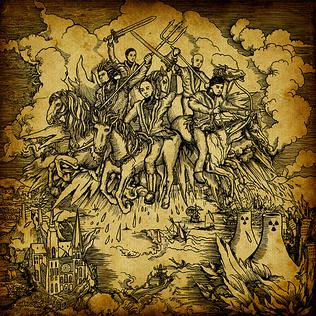JUNE 30, 2022 – (Cont.) “Dark ages fell over all land on earth?” asked the alien.
“Well, Dark Ages is a term that’s used to describe the condition of Europe in the centuries following the collapse of the Roman Empire in the west. Much progress ceased and worse, was lost altogether—progress in the form of political structures, military power, infrastructure, technology developments, and arts, letters, philosophy, and culture. Vast reaches of the rest of the world—Asia, Africa, India, North and South America—existed separately to varying degrees of success. These areas produced their share of thinkers, builders, do-ers, conquerors and enlightenment—and darkness—but none served as an incubator for democracy as Greek city-states and the Roman Republic had. But even in Europe, the Dark Ages extinguished democratic tendencies arising from Greece or Rome. The sword—and darkness—became the rule of rulers.
“When I say ‘democracy’ you must understand the context. Self-rule as devised and practiced in Ancient Greece or Ancient Rome involved only a subset of people. We’re talking only free men (did I tell you that as mammals, we humans come in two basic models, male and female, designed in combination to procreate more humans? Variations of the basic model are now being recognized, by the way, but that’s another whole discussion) and only free men who owned property. By current standards, it was hardly American-style democracy but it was a start.
“Has American democracy achieved perfection?” asked the alien in a wholly innocent tone.
I burst out laughing but quickly shut my mouth and swallowed hard. My laughter must’ve sounded offensive, and I worried that I’d embarrassed the alien. “American democracy is a long way from perfection,” I said, “and recent events suggest that actually we’re moving pell-mell in the opposite direction from perfection. In fact, while many people openly advocate or acquiesce in a puritanical, autocratic government and others push for no government, many other people long-disposed to the ideals of democracy are beginning to question its functionality.”
“What’s desirable and what’s undesirable about a democracy, and what are the alternatives?” asked the alien.
“Those are loaded questions.”
“‘Loaded?’ What does that mean.”
“‘Loaded’ means pregnant with angles, perspective, possibilities. I should really back up a few steps and define democracy.”
“Yes, I’m quite out of your league here, so it would help to have a bit more grounding.”
“Good. Okay, let me take a crack at it. But first I have to go to the bathroom. Wait right here.”
“I’m not going anywhere.”
I actually had to go to the bathroom, thanks to the lemonade, but more important, as in previous breaks, I needed space to refine my thoughts. I also needed to load up on more powdered, crescent almond cookies.
Hmm, I thought. Democracy. How to explain it to the alien, who had absolutely no frame of reference by which to understand it. I took a pee, washed my hands for what I finally realized was way more than a minute, emptied the box of cookies onto the plate and returned to the porch.
“Democracy, as we’ve come to define it,” I said, just before popping a cookie into my mouth as I took my seat again, “is a system of governance under which every citizen gets to register his or her approval or disapproval of a proposed course of action to which all citizens will be subjected—including those who disapproved—so long as a majority of citizens approved it. That’s the purist form of democracy.
“This pure form of democracy works in a small group—a neighborhood, a small number of people who assemble voluntarily around an idea, a mission, a venture.” (Cont.)
(Remember to subscribe to this blog and receive notifications of new posts by email.)
© 2022 by Eric Nilsson
